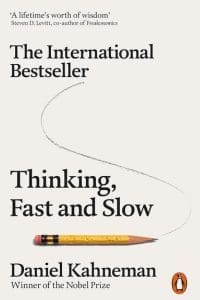
Developing Mental Toughness in Young Athletes: Coaching Lessons from Ultra Running
With Pierce Showe
When you’re coaching young adult athletes aged 17–21+, the line between talent and toughness often defines who thrives under pressure and who fades when challenges hit. In a recent episode of the Demystifying Mental Toughness Podcast, David speaks with Pierce Showe an endurance athlete, coach, and world record holder about what it truly means to develop mental toughness through hardship, consistency, and belief.
For coaches guiding athletes through late adolescence into early adulthood, Pierce’s journey offers practical takeaways that go far beyond running. His story connects deeply with sport psychology principles around resilience, confidence, and emotional regulation, all of which are critical for performance in both individual and team sports.
From Lacrosse to Ultra Marathons: The Mindset Behind Progression
Pierce began his athletic life in lacrosse before transitioning into long-distance running. His first half marathon was less about physical performance and more about self-discovery. The doubts, nerves, and external criticism he faced mirror what many young athletes experience when they step up to a higher level whether that’s national competition, university sport, or senior performance environments.
His biggest takeaway? Belief follows experience.
He discovered that once he finished something he thought was impossible, it unlocked a new level of potential. Coaches working with young athletes can replicate this by creating small wins, mini challenges that stretch players without overwhelming them.
Try this: Set progressive performance goals; a fitness benchmark, technical target, or mental skill challenge. After each success, help athletes reflect on what changed in their mindset, not just their technique or tactical nouse.
>> For related reading: Why You Should Recognise The Power of Your Words
Mental Toughness as a Skill — Not a Fixed Trait
One of the most powerful takeaways from Pierce’s story is his view that mental toughness is a perishable skill. Just like speed, strength, or touch, it fades without practice.
For young athletes, especially those balancing academics, social life, and training, this message is vital. Mental toughness isn’t about being stoic or emotionless. It’s about regularly putting yourself in discomfort, learning how to cope, and bouncing back with intent.
Coaches can build this by creating environments that reward resilience as much as results.
- Encourage players to talk about how they handled adversity after a tough session.
- Reinforce recovery and reset strategies – eating, sleeping, and mental resets are part of toughness, not signs of weakness.
- Make mental training part of your training sessions.
>> You might explore tools like this
The Segmentation Strategy: Breaking Down the Impossible
Pierce attributes much of his endurance success to a simple yet transformative strategy – segmentation. During 200-mile races, focusing on the finish line was mentally unbearable. So instead, he broke each race into small segments: one aid station at a time, one climb at a time, one gel at a time.
For coaches, segmentation is a teaching goldmine. It teaches athletes to:
- Focus on the present task, not the final outcome.
- Manage stress in chunks, reducing overwhelm.
- Recognise progress as they go.
In practical coaching terms, segmentation might look like:
- Focusing on one half of the match, not the full game.
- Setting a goal for the next 10 minutes of play, rather than the entire tournament.
- Encouraging reflection after each session, not just end-of-season reviews.
Overcoming the Future-Oriented Trap
In the podcast episode, David and Pierce discuss a common mental roadblock future-oriented thinking. Many young athletes fast-forward in their minds to potential failure or exhaustion before it even happens. This anticipation often amplifies anxiety, drains focus, and damages performance.
Coaches can help athletes combat this by: developing grounding techniques and process-oriented focus. For example:
- Mindset prompts: “What can I control right now?”
- Reflection cues: “What went well in that last play?”
- Performance anchors: Breathing resets, focusing on one technical cue, or short cue word such as “be brave”.
Encouraging athletes to stay in the moment isn’t just psychological, it’s tactical. It improves decision-making speed, accuracy, and emotional control under fatigue.
Lessons in Leadership and Humility
Pierce’s experience at the Tahoe 200 race is a vivid example of humility. Overconfidence, poor preparation, and ignored details (like forgetting to prevent chafing!) led to near disaster. What saved him wasn’t physical strength it was humility, adaptability, and resetting his approach.
This story mirrors what happens in sport when talented young athletes rely solely on natural ability without adapting their mindset.
For coaches, it reinforces the need to nurture self-awareness and accountability in young athletes.
Practical steps include:
- Conducting honest one-to-one reflections after setbacks.
- Discussing emotional control openly especially in leadership roles or captaincy.
- Using storytelling and case studies like Pierce’s to normalise struggle as part of growth.
>> Related resource: How to Develop Mental Strength in Young Athletes
Bringing It All Together: Coaching Mental Toughness Daily
Here’s how youth coaches can integrate Pierce Showe’s lessons into everyday practice:
Normalize Difficulty
- Let athletes know discomfort is part of the process.
- Reflect on challenges together after tough sessions.
Teach Reset Strategies
- Encourage small pauses – a breath, a drink or a reset before big decisions.
- Model calmness under stress yourself.
Build Micro-Goals
- Ask: “What’s your next focus?” rather than “What’s your outcome?”
- Celebrate consistent effort and mental discipline.
Encourage Faith and Purpose
- Pierce’s story highlights spiritual and personal purpose as mental fuel.
- Help athletes connect to why they play, not just what they achieve.
Keep the Conversation Going
- Create space in team culture for mental performance discussions.
- Share resources like podcasts, clips, and reflections that reinforce these ideas.
Final Reflections
As a youth sport coach, your influence extends far beyond tactics and technique. You’re shaping how young people approach challenge, confidence, and adversity in sport and in life.
Pierce Showe’s journey from self-doubt to ultra-endurance is a powerful reminder that mental toughness is built one challenge at a time. The young athletes you coach today can learn to thrive under pressure if you teach them how to segment their goals, reflect on their progress, and face discomfort with courage and bravery.
You can also join our online community – THE SPORTS PSYCHOLOGY HUB – for regular Sports Psychology tips, podcasts, motivation and support.

Best Wishes
David Charlton
Global Sports Psychologist who is located near Newcastle Upon Tyne, UK and willing to travel Internationally. David also uses online video conferencing software (Zoom, Facetime, WhatsApp) on a regular basis and has clients who he has supported in the UK, UAE, Saudi Arabia, Australia and New Zealand.
Managing Director – Inspiring Sporting Excellence and Founder of The Sports Psychology Hub. With over 15 years experience supporting athletes, coaches, parents and teams to achieve their goals, quickly.






